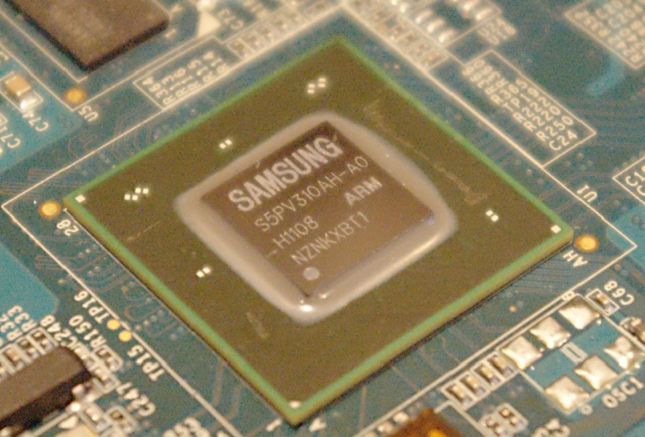Affiliate links on Android Authority may earn us a commission. Learn more.
Report: Apple and Qualcomm orders to boost Samsung semiconductor earnings this year
February 3, 2015

Although Samsung may not be having the easiest time in the mobile market, 2015 is expected to be an excellent year for the company’s foundry (chip manufacturing) business. Industry sources are confident that Samsung’s 14nm FinFET technology will see exceptional demand this year.
Qualcomm, Apple and NVIDIA are said to be looking to collaborate with big foundry players to quickly shrink down the size of their application processors, in the pursuit of additional energy efficiency for mobile products. We heard talk of similar deals with Apple and Qualcomm throughout 2014. While Samsung is not the only chip manufacturer in the mobile industry with smaller processes on the way, its 14nm FinFET manufacturing process is considerably further ahead than that of the competition.
“Samsung’s system semiconductor business is going to mass produce and supply chips to Apple, Qualcomm, and NVIDIA starting in the second quarter of this year. As a result, the Korean tech giant is projected to exhibit stellar performance.” – Park Yu-ak, Meritz Securities
While TSMC is looking to make the move from 20nm to 16nm early this year, Samsung and Global Foundries already have a 14nm process in place, giving the company a notable lead. Furthermore, application processor manufacturers are expected to try and lower their costs this year, as prices for mobile processors have been falling lately. Without additional investment on the part of its rivals, Samsung is likely to retain this advantage.
Strategy Analytics estimates that Qualcomm shipped 40 percent of the global AP market last year, accounting for 50 percent of sales, with Apple accounting a further 16 percent of the market. If these two companies place large orders for 14nm chips from Samsung semiconductor, the business could end up producing processors in huge volumes this year.
Last year, Samsung’s semiconductor business generated KRW 10.66 trillion ($9.72 billion) in revenue and KRW 2.7 trillion ($2.46 billion) in profit, mostly from strong demand for memory modules and 20nm application processors. This profit has helped to somewhat offset its stalling mobile business, and a boost in AP revenue this year could go a long way to shoring up Samsung’s bank balance.